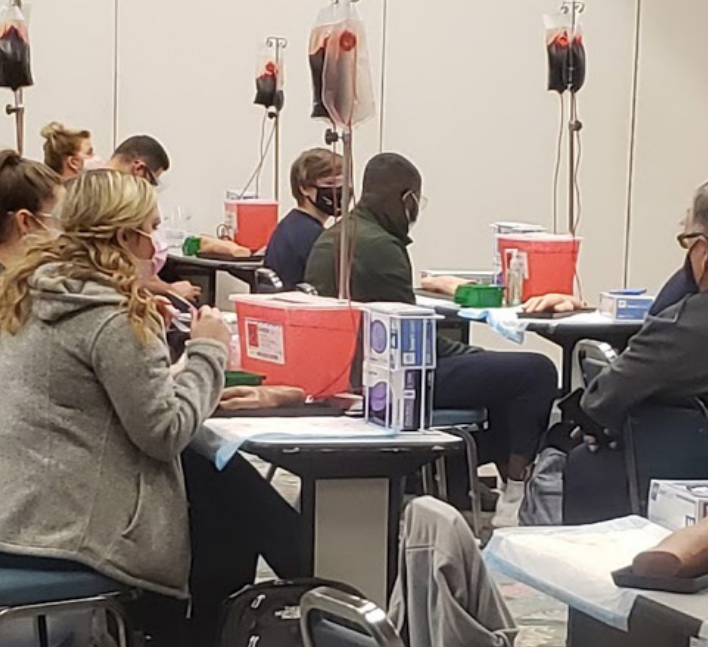OCCC has procedures to help COVID-infected students succeed

It has been nearly one year since OCCC transitioned to mostly online classes because of the spread of COVID-19.
The second half of spring semester 2020 was completed completely online, and employees worked from home, leaving the campus almost completely empty. The summer semester followed a similar pattern except that the campus was reopened for employees to return to work.
Slowly, as access to the building increased, some classes were made available on campus
These on-campus exceptions were limited to ones that absolutely had to be done in person, such as broadcasting, art, film and video, some sciences, and automotive as well as others
If online students come down with COVID-19, they have the opportunity to continue to learn and do course work at home, unless their symptoms are severe.
But what about students with on-campus classes?
Per the CDC’s COVID-19 guidelines, people with COVID-19 should self-quarantine and have little to no contact with others until they are no longer contagious.
So if students can’t attend class due to self-quarantining, then they can’t access the resources they need, and most cannot complete their assignments.
Are these students expected to just drop their class? Are there any policies that protect students’ education if they contract COVID-19?
OCCC has no policy regarding COVID-19 and students sick with COVID specifically, but at least one administrator has said that OCCC has a procedure for helping students who contract COVID-19.
Health Professions Dean Vincent Bridges said OCCC is very accommodating to students who have serious illnesses and or require hospitalization, according to an email provided by OCCC Chief of Staff Danita Rose.
Dean Bridges said when the personnel of a division office is notified of a life changing event in a student’s life that impedes them from completing their coursework, that division office should then create a contract that allows the student to continue with the class.
According to Bridges, the contract basically gives students extensions and creates new due dates for assignments.
“We will submit the grade the student has earned at the time of the contract development,” he said.
Bridges said the college tries not to award incompletes, or an “I”, grade because sometimes there are issues with follow through on assignments, and the work may not be completed — resulting in the incomplete grade staying on a student’s transcript permanently if not changed timely.
“We were doing this before COVID and it works very well. It shows the students that we do care about their success and that we will work with [all students] to get through whatever event they are facing” Bridges said.
Academic Advisor Shara Hendriks, said while she has not had any students who are taking on-campus courses reach out to her about what to do for their classes if they contract COVID-19, she has had some online students reach out to her.
“The students who I have talked to who have online classes know they must get a negative test result and wait at least 14 days before they come to campus again,” Hendriks said.